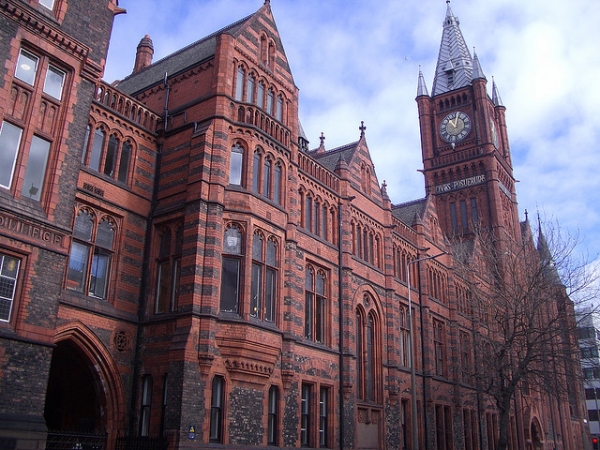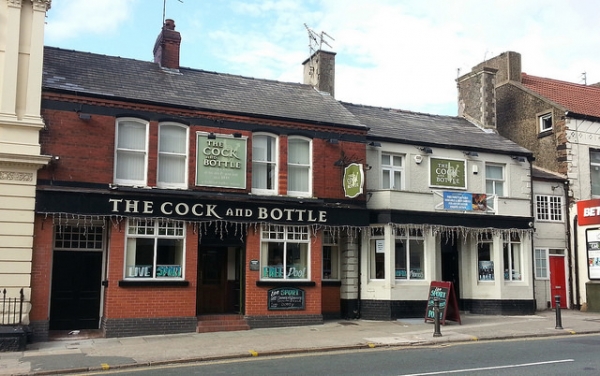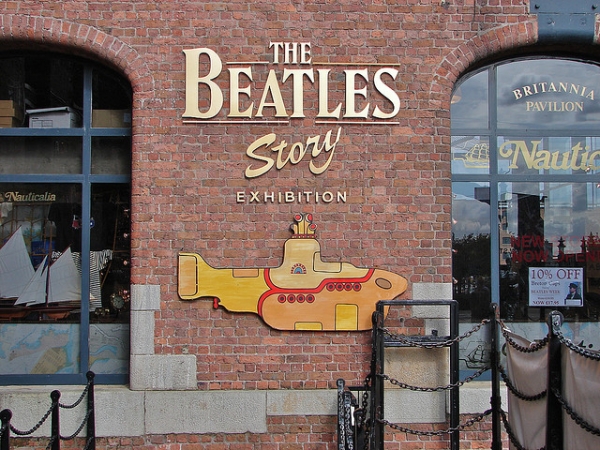Nu pierdeți cele mai bune locuri de muncă!
Abonează-te și săptămânal iți vom trimite un email cu ultimele locuri de muncă disponibile. Introdu adresa ta de email mai jos
Liverpool is unmistakably a former dock city - from the wide wharfs that were once lined with cargo ships to the grand buildings built for the rich merchants who used to inhabit them. Today that life is gone but some of the easy-going spirit of ‘have fun while can – and definitely when you’re at shore’ remains. As does a handsome urban environment, albeit with some slightly ‘well used’ parts!
There are many clichés about Liverpool and its football loving inhabitants renowned for their wit and laid view of life – and allegedly work! All are true, up to a point. For, all of these miss the rich cultural vein that runs through the city. And not just as the birthplace of ‘The Beatles’.
Liverpool has many museums, some of the best art galleries in the United Kingdom, excellent transport links and has undergone a huge urban regeneration programme over the last 30 years. Its impressive waterfront is now an ‘UNESCO World Heritage Site’ deemed a 'supreme example of a commercial port at the time of Britain's greatest global significance.'
It has great universities, a buzzing nightlight and affordable housing. In short, it’s a great place to study abroad.
Some schools worth checking out
The University of Liverpool has a modern campus situated in the city centre. Its origins date back to the late C19th. It offers course across the arts, sciences, and humanities and is particularly well regarded in the fields of electrical engineering and electronics, history and veterinary science. The university has established strong links with other colleges in Chile, Mexico and Spain, as well a co-partnership with ‘Xi’an Jiaotong-Liverpool University’ (XJTLU) in Suzhou, China. This enables students studying some subjects to complete part of their degree abroad, if they want to.
Liverpool Hope University has two main campus sites on opposite sides of the city centre. A free shuttle bus runs between the two. It has a strong tradition of scholarship and research in science, the arts, humanities, social science and education. Research-led seminars in the final year provide opportunities for students to choose specialisms that particularly interest them.
Liverpool John Moores University has its main campus at Hope Park, with another site at Everton. Originating from a small mechanics institution founded in 1825, the institution grew by converging and amalgamating with different colleges and eventually became one of the UK’s ‘new generation’ universities in 1992. It offers courses across the sciences, humanities and arts and includes ‘work-related learning’ in each of its degree programme, so students have an opportunity to go on placements to professional settings.
THE places for student housing in Liverpool
Over a tenth of the population of Liverpool is made up of students. All of the universities provide on, or near, campus housing and usually guarantee you a place for your first year. Costs vary depending on whether the accommodation is catered or not. The ‘Accommodation for Students’ website also has information about private student halls in the city - they have rooms in shared, un-catered accommodation available from £95 a week.
The City Centre (properties with the postcodes L1, L2 and L3) is the most vibrant place to live and will cut travel costs, especially if you’re studying at the ‘University of Liverpool’ or ‘Liverpool John Moores’. Kensington and Tuebrook (L6, L7) are about 2.4 km outside the centre. This area is popular with students wishing to live within close proximity to the city at lower rents.
Toxteth (L8) is an easy walk to the city centre and has some very beautiful Georgian terraces. It’s a good place to look if you’re after space with lots of rooms to share. Wavertree and Picton (L15) are 2.4km and 4 km outside the centre, respectively. They are amongst the most popular student districts a little further out and have good pubs as well as lots of shops. They also have good links to the ‘out of town’ campuses and to the ‘Hope University’ site at Childwall. Rent levels are often significantly lower than in the centre.
The best time to start looking for a place to live is from February onwards. Liverpool Student Homes is the official university service for finding private accommodation, all of the properties listed on its website will have met the required safety standards for housing in the UK.
Or, you may decide to try to find accommodation by scouring private ads. Manchester Evening News and the Gumtree website are good resources for this.
The cost of education in Liverpool
Annual tuition fees for International Students range from around £11,000-£29,950 per annum, depending on the university and course. You should also budget between £750-£900 a month for your other living costs.
There are useful ‘cost of living’ calculators on some of the university websites to help you assess what your annual expenses, in addition to tuition fees, may be.
All the Liverpool-based universities above have grants and bursaries on offer for International Students, so check the website of the one you are thinking of applying to.
You’re here now, so what’s next?
All the universities have International Student Support Teams that provide a dedicated advisory service for international students on non-academic and welfare matters such as immigration, employment, finance and other concerns.
The universities also have hundreds of clubs and societies run for students by students. They cover sports, subject related fields and some that are just for fun! You might also want to get involved in the university newspaper or radio station, both are great ways to make friends and meet people. The Student Room website is also a good way to seek out information and ask questions online.
The Students’ Union (called ‘The Guild of Students’ at the ‘University of Liverpool’), a nationwide organization representing students and lobbying for their interests, also has an International Students’ Association subsection. It’s free to join.
Sign in to publish a comment




Be the first to comment on this post.